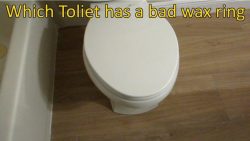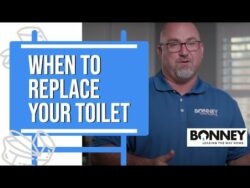In today’s article, you will discover the essential tips and strategies required to ensure the longevity and efficiency of your plumbing system. As plumbing issues can lead to significant disruptions and costly repairs, it is crucial to understand the preventive measures that can be taken to mitigate these risks. By implementing the advice provided in this ultimate guide to preventive plumbing maintenance, you can significantly reduce the likelihood of encountering avoidable plumbing problems and maintain a smoothly functioning system in your home or workplace.
Why Preventive Plumbing Maintenance is Important
Preventive plumbing maintenance is crucial in order to maintain the proper functioning of your plumbing system and to avoid costly repairs down the line. By implementing a regular maintenance plan, you can identify and address potential issues before they become major problems.
Understanding Plumbing Systems
Before delving into preventive maintenance, it’s important to have a basic understanding of the different types of plumbing systems commonly found in homes. The two main types are water supply systems and drainage systems. Water supply systems deliver clean water to various fixtures in your home, while drainage systems remove wastewater and keep your home sanitary.
Types of Plumbing Systems
There are several types of plumbing systems, including single-pipe systems, branched systems, and loop systems. Single-pipe systems are the simplest, with one main pipe delivering water to all fixtures. Branched systems have multiple branches off the main pipe, and loop systems have a looped piping arrangement to ensure equal water pressure throughout the home. Understanding the type of system in your home can help you better identify potential maintenance needs.
Common Plumbing Problems
There are several common plumbing problems that homeowners often encounter. These include leaky faucets, clogged drains, running toilets, and water heater issues. Identifying these common problems early on allows for prompt repairs and prevents further damage to your plumbing system.
The Impact of Neglected Maintenance
Neglecting regular maintenance can lead to more serious issues such as burst pipes, water damage, and even health hazards. Small leaks can worsen over time, causing structural damage and promoting the growth of mold and mildew. Regular maintenance can help you avoid these costly and potentially dangerous situations.
Developing a Preventive Plumbing Maintenance Plan
To effectively maintain your plumbing system, it’s important to develop a preventive maintenance plan. This plan should outline the frequency of maintenance, a checklist of tasks to be completed, and when to seek professional help.
Determining Maintenance Frequency
The frequency of your preventive plumbing maintenance will depend on a variety of factors, including the age of your plumbing system, the number of occupants in your home, and the quality of your water supply. As a general rule, it is recommended to schedule maintenance at least once a year, but older homes or homes with more complex plumbing systems may require more frequent maintenance.
Creating a Checklist
Creating a checklist of tasks to be completed during your preventive maintenance can help ensure that you address all necessary aspects of your plumbing system. This checklist should include inspecting faucets and taps, maintaining toilets, caring for showerheads, checking water heaters, examining drains and sinks, inspecting pipes for leaks, preventing frozen pipes, protecting against corrosion, replacing old or damaged pipes, clearing clogged drains, preventing drain odors, avoiding tree root intrusion, maintaining sewer lines, inspecting the septic tank, pumping the septic tank, using septic-friendly products, avoiding septic overload, installing leak detectors, protecting against burst pipes, and maintaining gutters and downspouts.
Seeking Professional Help
While many preventive maintenance tasks can be done by homeowners, it is important to seek professional help for more complex issues or if you are unsure of how to address a problem. Professional plumbers have the expertise and specialized equipment necessary to properly diagnose and fix plumbing issues.
Inspecting and Maintaining Plumbing Fixtures
Plumbing fixtures, including faucets, toilets, showerheads, and water heaters, require regular inspection and maintenance to ensure their optimal performance.
Inspecting Faucets and Taps
Inspecting faucets and taps for any leaks or drips is an important part of preventive maintenance. A small leak can waste a significant amount of water over time and may indicate a larger underlying problem. Inspect the handles, valves, and seals for any signs of wear or damage, and promptly repair any leaks or replace faulty parts.
Maintaining Toilets
Toilets should be inspected regularly to check for any leaks or running water. A running toilet can waste a significant amount of water and increase your utility bills. Additionally, perform regular cleaning to prevent the buildup of mineral deposits or blockages. If you notice any leaks or persistent issues, it is best to call a professional plumber for further inspection and repair.
Caring for Showerheads
Showerheads should be cleaned regularly to remove mineral deposits that can affect water flow and pressure. Soak the showerhead in a mixture of vinegar and water to dissolve any buildup, and scrub with a brush to ensure a thorough cleaning. If your showerhead is not performing optimally even after cleaning, it may need to be replaced.
Checking Water Heaters
Water heaters should be checked regularly for any signs of leaks or corrosion. Inspect the temperature and pressure relief valve for proper operation, and flush the tank to remove any sediment buildup. If you notice any issues or unusual noises coming from the water heater, it is important to have it inspected by a professional plumber.
Examining Drains and Sinks
Regularly examining drains and sinks is essential to prevent clogs and keep water flowing smoothly. Remove any debris or hair buildup from sink drains to prevent blockages, and use a drain cleaner to remove any grease or soap scum. If you are experiencing frequent clogs or slow drainage, it may be necessary to call a professional plumber to address the issue.
Maintaining Water Supply Lines
Water supply lines, which deliver clean water to your plumbing fixtures, require regular inspection and maintenance to prevent leaks, frozen pipes, and corrosion.
Inspecting Pipes for Leaks
Regularly inspecting your pipes for any leaks is crucial to prevent water damage and costly repairs. Check both the exposed and hidden pipes for any signs of moisture or water stains. If you notice any leaks, it is important to promptly address the issue by repairing or replacing the affected pipes.
Preventing Frozen Pipes
Frozen pipes can burst and cause extensive water damage to your home. To prevent frozen pipes, insulate exposed pipes in colder areas of your home, such as attics or basements. Additionally, allow faucets to drip slowly during extremely cold weather to relieve pressure in the pipes. If you suspect a frozen pipe, it is important to call a professional plumber for assistance.
Protecting Against Corrosion
Corrosion can cause significant damage to your pipes and plumbing fixtures. Inspect the pipes for any signs of corrosion, such as discoloration or flaking. If you notice any corrosion, it is important to address the issue promptly by repairing or replacing the affected pipes.
Replacing Old or Damaged Pipes
Old or damaged pipes can lead to leaks and other plumbing issues. As part of your preventive maintenance plan, consider replacing any old or damaged pipes. This will not only help prevent future problems but also improve the overall performance and efficiency of your plumbing system.
Keeping Drainage Systems in Top Shape
Maintaining a healthy drainage system is essential to prevent clogs, drain odors, and sewer line issues.
Clearing Clogged Drains
Clogged drains are a common plumbing problem that can be prevented through regular maintenance. Use drain covers to catch hair and debris, and avoid pouring grease or oil down the drain. If you notice a slow drain or persistent clogs, use a plunger or drain snake to clear the blockage. For stubborn clogs, it may be necessary to call a professional plumber for assistance.
Preventing Drain Odors
Drain odors can be unpleasant and indicate a buildup of bacteria or organic matter in your drains. Regular maintenance can help prevent these odors. Flush drains with hot water regularly to remove any buildup, and use a mixture of baking soda and vinegar to freshen them up. If the odor persists, it may be necessary to call a professional plumber to investigate further.
Avoiding Tree Root Intrusion
Tree roots can intrude upon sewer lines and cause significant damage. To prevent tree root intrusion, avoid planting trees or large shrubs near your sewer lines. If you suspect tree root intrusion, it is important to call a professional plumber to assess the situation and make any necessary repairs.
Maintaining Sewer Lines
Regular maintenance of sewer lines is crucial to prevent backups and expensive repairs. Inspect your sewer lines for any signs of blockages, such as slow drains or gurgling noises. If you notice any issues, it is important to call a professional plumber to perform a sewer line inspection and address the problem.
Maintaining a Healthy Septic System
For homeowners with a septic system, regular maintenance is essential to prevent backups, foul odors, and system failures.
Inspecting the Septic Tank
Regular inspections of the septic tank are important to ensure its proper functioning. Inspect the tank for any signs of leaks or damage, and check the levels of sludge and scum. If the levels are too high, it may be necessary to have the tank pumped.
Pumping the Septic Tank
Pumping the septic tank is a critical maintenance task that should be performed regularly. This helps remove accumulated solids and prevents the tank from reaching its capacity. The frequency of septic tank pumping depends on various factors, such as the size of the tank and the number of occupants in the home. Consult a professional septic tank service provider for recommendations.
Using Septic-Friendly Products
Using septic-friendly products is important to maintain the health of your septic system. Avoid flushing or pouring harsh chemicals, grease, oil, or non-biodegradable materials down the drain. These can disrupt the natural balance of bacteria in the septic tank and cause system failures.
Avoiding Septic Overload
To prevent septic overload, it is important to practice water conservation in your home. Limit excessive water usage, repair any leaks promptly, and avoid overloading the system with large amounts of water in a short period. This will help maintain the balance and functioning of your septic system.
Preventing Water Damage
Water damage can be costly to repair and can cause extensive damage to your home. Implementing preventive measures can help protect your home against water damage.
Installing Leak Detectors
Installing leak detectors can provide an early warning in case of a leak or burst pipe. These detectors can sense water and send alerts to your smartphone or a central monitoring system, allowing you to take immediate action.
Protecting against Burst Pipes
Burst pipes can cause significant water damage and require immediate attention. To protect against burst pipes, insulate exposed pipes in colder areas of your home, shut off the main water supply during extended absences, and keep the home temperature above freezing.
Maintaining Gutters and Downspouts
Regular maintenance of gutters and downspouts is important to ensure proper water drainage and prevent water from seeping into your home. Clean the gutters regularly to remove leaves and debris, and ensure that downspouts are properly directed away from the foundation of your home.
Addressing Plumbing Emergencies
Despite thorough preventive maintenance, plumbing emergencies can still occur. Being prepared and knowing how to address these emergencies can minimize damage and ensure the safety of your home.
Identifying Major Plumbing Emergencies
Major plumbing emergencies include burst pipes, severe leaks, sewer line backups, and gas leaks. These emergencies require immediate attention from a professional plumber to mitigate the damage and ensure the safety of your home.
Steps to Take in Case of Emergencies
In case of a plumbing emergency, it is important to remain calm and take prompt action. Shut off the main water supply to stop the flow of water, if applicable. If there is a gas leak, evacuate the premises immediately and call the gas company. Contact a professional plumber for assistance, and follow their instructions until help arrives.
Preparing for Emergency Situations
Preparation is key to effectively dealing with plumbing emergencies. Keep a list of emergency contact numbers, including those of reliable professional plumbers, and familiarize yourself with the location of your main water shut-off valve. Additionally, periodically review and update your homeowners’ insurance policy to ensure that you have adequate coverage in case of water damage.
Educating Homeowners on Preventive Maintenance
Educating homeowners on the importance of preventive plumbing maintenance can help them avoid costly repairs and ensure the longevity of their plumbing systems.
Providing Maintenance Tips to Homeowners
Proactively providing homeowners with preventive maintenance tips can empower them to take care of their plumbing systems. This can include information on regular inspections, DIY maintenance tasks, signs of potential issues, and when to seek professional help. By providing homeowners with the necessary knowledge, they can take proactive steps to preserve their plumbing systems.
Promoting Awareness and Education
Promoting awareness and education on preventive plumbing maintenance through various channels can help homeowners understand the importance of this proactive approach. This can include educational articles, workshops, community events, and social media campaigns. By increasing awareness, homeowners can prioritize preventive maintenance and ultimately save money and resources in the long run.
In conclusion, preventive plumbing maintenance is essential in order to maintain the proper functioning of your plumbing system and avoid costly repairs and potential health hazards. By understanding the different types of plumbing systems, common plumbing problems, and the impact of neglected maintenance, homeowners can develop a comprehensive preventive maintenance plan. This plan should include regular inspections and maintenance of plumbing fixtures, water supply lines, drainage systems, septic systems, and measures to prevent water damage and address plumbing emergencies. By educating homeowners on the importance of preventive maintenance and promoting awareness and education, a proactive approach can be embraced to ensure the longevity and efficiency of their plumbing systems.





